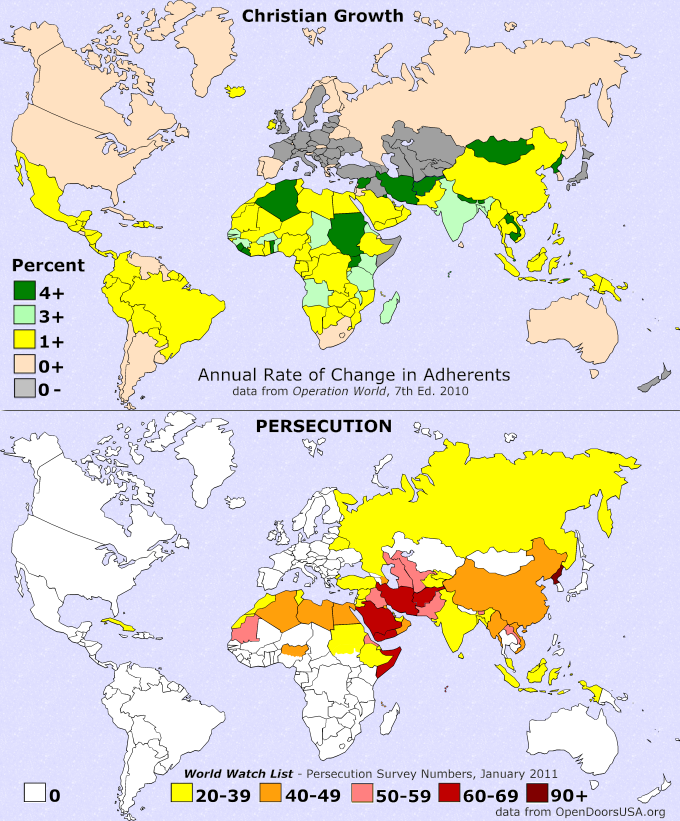 (Download a PDF version of this article.)
(Download a PDF version of this article.)
The Challenge
In international diplomacy and in stability operations, American entities are apologizing with the wrong forms. They are assuming that because the function of apology is universal the forms for it are universal as well, but they are mistaken. Using culturally inappropriate forms for apology undermines reconciliation, intensifies resentment, and prolongs hostility. No single function for communication involves more tragic cross-cultural misunderstanding with more negative consequences for modern global stability than misunderstood apologizing.
Some Cross-Cultural Communication Theory
Meaning to tell the audience his embarrassment was great for being late, the foreign missionary actually ended up telling the congregation that his private parts were very large. This misunderstanding turned out to be humorous, but the misunderstandings resulting from wrongly communicated apologies are exponentially more significant and disruptive.
Different cultures have different meanings for forms that accomplish universal functions. All societies have ways to apologize. Apologizing is a universal function. Words, grammar, and gestures, however, differ. They are forms. They have different meanings in different cultures. In the above example, the foreign guest chose the wrong word (form) to accomplish his intended apology (function) resulting in misunderstanding (missed meaning).
The “Languages” of Apology
Anthropologist Gary Chapman, whose writing and speaking popularized the five love-languages, has written with clinical psychologist Jennifer Thomas about five forms of apology. These forms from page 24, that he calls “languages of apology,” are:
- Expressing Regret – Saying, “I am sorry.”
- Accepting Responsibility – Admitting, “I was wrong.”
- Making Restitution – Committing, “I will make it right.”
- Genuinely Repenting – Promising, “I will not do that again.”
- Requesting Forgiveness – Asking, “Will you forgive me?”
Chapman and Thomas assert that people differ in their perceptions of apology. Different forms speak more deeply and more sincerely to different people.
You may appreciate hearing all languages, but if you don’t hear your primary apology language, you will question the sincerity of the apologizer. On the other hand, if the apology is expressed in your primary language, then you will find it much easier to forgive the offender (page 105).
What’s true between individuals who vary in personalities is doubly true between cultures that vary in language, heritage, and majority religion. Different apology forms also speak more deeply and more sincerely to different cultures.
When Arabs or Pushtuns hear apologies from Americans in American forms rather than in their own cultural form, then they question American sincerity. On the other hand, if Americans were to apologize to Arabs or Pushtuns in the primary Arab and Pushtun cultural forms, then reconciliation would be more attainable.
Some Differences Between the Forms
So what are some differences in the preferred forms for apology between cultures?
The New Testament admonition to forgive as one has been forgiven reflects a universal pattern of accepting apologies based upon God’s example. Different religions have different beliefs on apologizing to God. These religious differences result in different forms for apologizing to each other. A society’s historical, economic, and political context plays an important role as well.
Some Social Context Driven Differences
Regarding social context, American civilization takes significant control over its environment. American people have control over their careers, marriages, and religion. The American government has broad influence in the world. People with a high sense of power and control also have a high sense of responsibility. As a result, Americans tend to doubt the sincerity of apologies that avoid taking responsibility. They typically respect people who own up to their mistakes. They usually disrespect people who make excuses and blame others or circumstances. Americans especially despise the word, “but,” in any sentence that includes the words, “I am sorry.”
Most people in the world, however, have little power and minimal control over their environment. They are generally more vulnerable to nature and disasters than Americans. Arabs, for example, have little personal control over their careers, marriages, and religion. The frequently uttered phrase “insyallah,” meaning, “If God wills,” illustrates the perception that ultimate responsibility rests with God rather than people. Middle Eastern governments have little global influence and tend to see themselves as victims in a world order dominated by others. People with little sense of power and control have a low sense of responsibility. Therefore, shouldering responsibility is rarely a necessary part of their apologies, and blaming shortcomings on others is actually part of the form for apologizing. People in these contexts desire dignity more than accountability.
American quickness to apologize to the world for everything from collateral damage in air strikes and Abu Ghraib prisoner abuses, to past injustices like the slave trade, flows from a sense of being responsible and in control. Confessing “sins” and accepting responsibility fills an American emotional need, but it does not lead to reconciliation with offended populations. Those offended parties are not looking for admissions of guilt or acceptance of responsibility as much as they are looking for restitution and the affirmation of dignity that comes when someone asks for forgiveness. Neither making restitution nor requesting forgiveness requires admitting responsibility. These are the primary apology forms for much of the world.
Some Religious Context Driven Differences
Differences in religious heritage contribute significantly to difference in forms for apology. In Christian tradition, God forgives sins when his people confess them and take responsibility for them. Accordingly, no one can make restitution for his or her own sins. Only God can do that. Theologically, it’s called “substititionary atonement.” Historically, it involves the sacrificial death of Jesus Christ. As a result, in personal and corporate relationships, restitution frequently comes through third parties like the government or insurance companies rather than directly from the responsible parties. Relationships are often restored with no restitution occurring at all. American apologies typically require the words “I was wrong” (confession), and “I am sorry” (regret). Often they include the words, “I will try not to do that again” (repentance).
Apologies in most of the rest of the world do not require these words of confession and accountability. To an American, omitting these sentiments would not really be an apology. And yet reconciliation happens all the time around the world in families and between tribes without anyone ever admitting guilt or accepting responsibility. In American culture, the main glue of relationships is trust, an important ideal in relationships is innocence, and a major destroyer of relationships is guilt. In most of the rest of the world’s cultures, the main glue is respect, an important ideal is honor, and a major destroyer is shame. American apologies seek to restore trust. For Americans, humbly admitting guilt enhances trustworthiness. Apologies in most other cultures seek to restore respect. Respectability involves honor, status, and appearances. Admitting guilt takes humility and undermines honor.
In both Christianity and Islam, relationship with God begins with identity as God’s people through profession of faith. In Muslim tradition, however, God forgives the sins of his people when they demonstrate that they are good Muslims by performing the ritual works of Islam (like the five pillars of Islam: fasting, praying, pilgrimage, alms giving, and reciting the creed). Confession is not necessary. Respectability is maintained. Humiliation is avoided. God forgives sins based upon good deeds outweighing bad ones. The equivalent form in personal and corporate relationships is making restitution and asking for forgiveness. Restitution is like a good deed. It affirms the dignity of both parties. Just as a government or insurance company can restore what has been lost without being at fault for someone else’s wrong-doing, a wrong-doer can restore what has been lost without ever admitting responsibility. Asking for forgiveness is different than saying “I am sorry.” It surrenders control to the other party. It moves responsibility for restoring relationship from the guilty party to the offended party. It admits to imperfection, but it does not admit to all of the details of the offense. That kind of detail would be a confession.
Making restitution and asking for forgiveness, while blaming circumstances or others in order to avoid responsibility, is the principle apology form in cultures with Muslim majorities. In many years of living and working among Muslims, I have rarely heard a Muslim say “I am sorry,” but I hear them asking for forgiveness all the time. In fact, requesting forgiveness from friends and relatives is an important feature in Muslim holiday celebrations. Humility in cultures with Muslim majorities isn’t demonstrated in the ability to admit faults but in the ability to depend upon grace from others to forgive faults that remain unconfessed. From the perspective of the people in these cultures, it is the American form for apology that sabotages reconciliation by undermining the dignity of the parties who need to reconcile. It publicly humiliates one party, it embarrasses the other, and it gives relational control to the offender rather than to the offended.
Some Practical Implications
These different forms for apologizing have different strengths and weaknesses. One form may even be objectively better than another. One may spark better social harmony than the other. For example, when reconciliation depends primarily on repentance, its highest price becomes humility. On the other hand, when it depends heavily upon restitution, a satisfactory price for justice may be too high to pay.
However, such comparisons are irrelevant to diplomacy and stability in places like Afghanistan where Americans are not called to change religiously grounded reconciliation systems but to work within what’s there. American entities must accommodate the preferred apology form of the culture with which they are dealing.
A Negative Example
In Mosul, Iraq in early 2009, a civilian sedan drove deliberately in front of a heavy American tracked vehicle as it was on patrol. The automobile driver and a passenger child were killed. The Americans made restitution to the family of the child and driver. They also apologized to the family and community by saying that they regretted causing the unfortunate accident. However, the insurgency-affiliated driver had deliberately driven in front of the Army vehicle in order to cause the collision. Anti-government elements had actually staged the incident to inflame hostility towards the Americans. The American admission of responsibility actually played into the hands of insurgents who were waging an information campaign against the Americans and against the American-supported Iraqi government. On the very day that the American Battalion Commander of the unit that had been involved in the accident was on his way to meet with community leaders to underscore his apology and deliver compensation, a member of the killed child’s family exacted revenge by driving into the Commander’s vehicle with an explosive packed car that killed the Commander.
My Recommendations
When American entities take responsibility for tragic events and negative circumstances in cultures with Muslim majorities, they undermine potential for reconciliation. In fact, the more that Americans underscore their sorrow and regret for these events and circumstances in attempting to foster sympathy and achieve good-will, the more they undercut their ability to reconcile with the people that they are offending. It’s exactly the opposite of expectations for the form of apology that’s primary in America. The admission of guilt and responsibility just serves to vindicate the aggrieved parties in their hostility. Forgiveness for transparently admitting guilt follows when entities are already in trusting relationships. When trusting relationships do not exist, that kind of transparency simply enhances justification for hostility.
Instead of expressing regret and thereby taking some measure of responsibility for everything from the Crusades to enhanced interrogations, American entities should request forgiveness – not for the perceived offenses, but for generic inadequacy. They should use words like, “If there’s anything that we’ve done to offend you, please forgive us.” This language transfers the initiative and responsibility for the relationship to the party that perceives itself to be offended without adding to their excuses for nursing bitterness. American aid for relief and development should then be offered not as restitution for American offenses, but as restitution for damage done by uncontrollable parties and circumstances. Accepting the aid becomes an admission that uncontrollable forces are to blame, that generic forgiveness is being offered, and that relationship is being established.
A Very Brief Review
Cultures have forms, functions, and meanings. Apologizing is a universal function, accomplished with different forms having different meanings in different cultures. Based upon their social context and religious heritage, Americans prefer a form of apology that emphasizes responsibility while minimizing dignity. Based upon a different context and heritage, many other cultures prefer a form of apology that maximizes dignity while minimizing responsibility.
Apologizing to people in one culture in the unfamiliar foreign form of another compounds misunderstanding and hostility over the original offense. American diplomatic and stability force entities habitually aggravate hostility and misunderstanding by apologizing in the form most familiar to them rather than in the form familiar to their audience. To facilitate global peace and security American entities in cross-cultural relationships need to understand and accommodate forms for apology that are unfamiliar to them.
(Download a PDF version of this article.)




 The Bible and the Qur’an are not equivalent books. Treating them as if they were facilitates misunderstanding and conflict.
The Bible and the Qur’an are not equivalent books. Treating them as if they were facilitates misunderstanding and conflict.
 Last month, I discovered a “thinking error” of national “groupthink” proportions that frustrates defeating terrorism and undermines peace negotiations around the world.
Last month, I discovered a “thinking error” of national “groupthink” proportions that frustrates defeating terrorism and undermines peace negotiations around the world.  I discovered this “thinking error” of “groupthink” proportions at the Air Force Academy. The class discussion was polite. Around five cadets were calling themselves non-religious. The other forty or so claimed to be religious. When asked why they were non-religious, the minority said that it was because all religions are basically the same with none demonstrably truer than another. No one contradicted this claim. No one had the courage to assert that religions were different or that one was better. Instead, the majority talked about how their religious practices, whether Catholic, Protestant, or Jewish, were personally meaningful to them.
I discovered this “thinking error” of “groupthink” proportions at the Air Force Academy. The class discussion was polite. Around five cadets were calling themselves non-religious. The other forty or so claimed to be religious. When asked why they were non-religious, the minority said that it was because all religions are basically the same with none demonstrably truer than another. No one contradicted this claim. No one had the courage to assert that religions were different or that one was better. Instead, the majority talked about how their religious practices, whether Catholic, Protestant, or Jewish, were personally meaningful to them.  In the article “Separate Truths” published on 25 April 2010 in the Boston Globe at
In the article “Separate Truths” published on 25 April 2010 in the Boston Globe at  Yes, it is true that the vast majority of Muslims disapprove of acts of terror in the name of Islam and favor peaceful means to advance their religious views, but it is also true that the vast majority of Muslims disapprove of what they consider to be immodesty, blasphemy, and apostasy. As most Americans readily support war to preserve political, economic, and religious freedom, most Muslims will similarly defend against what they consider to be challenges to the place of women and the honor of Islam. If Judeo-Christian civilization refuses to recognize these religious differences so that it can resolve them diplomatically, then it will continue suffering the consequences of violence from unaddressed differences and unwillingness to negotiate.
Yes, it is true that the vast majority of Muslims disapprove of acts of terror in the name of Islam and favor peaceful means to advance their religious views, but it is also true that the vast majority of Muslims disapprove of what they consider to be immodesty, blasphemy, and apostasy. As most Americans readily support war to preserve political, economic, and religious freedom, most Muslims will similarly defend against what they consider to be challenges to the place of women and the honor of Islam. If Judeo-Christian civilization refuses to recognize these religious differences so that it can resolve them diplomatically, then it will continue suffering the consequences of violence from unaddressed differences and unwillingness to negotiate.






 http://www.faithandwar.org
http://www.faithandwar.org Mark Durie's Blog
Mark Durie's Blog Military Missions Network
Military Missions Network The Christian Fighter Pilot
The Christian Fighter Pilot The Navy Christian
The Navy Christian